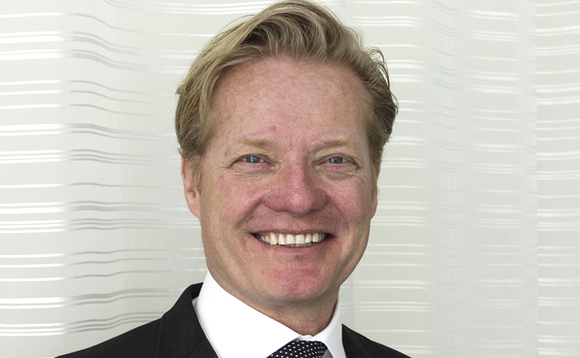
Swedish carry tax ruling a "negative blow", says EQT's Bygge

EQT chief operating officer Johan Bygge talks to Karin Wasteson about the Swedish tax authority's decision to present some of the firm's employees and partners with a SEK 670m tax bill.
How do you feel about the ruling, were you surprised?
It was quite expected, but I was hoping... We've put in a lot of time into explaining how this works both from the aspect of the firm and the individual – when you carry out investment and profit sharing as well as international praxis – and perhaps we'd been hoping that they took in a bit more of the discussion we've had instead of just going ahead with it, but I wasn't surprised, no. We've had a dialogue meanwhile.
How long do you think it will take before the process is over?
We want it to be over very quickly since this is obviously an unfortunate limbo situation, "hanging in the air" so to speak. Unfortunately there is always a risk that these kinds of processes take several years, and that's also the case even if nothing happens. I think it's good to shine a light on this issue since it's an important question, in order not to suffer surprises when building businesses.
What's the next step for EQT?
Now two things will happen: we will ask for a tax deferral, including the individual payments, and along with this we will send in a formal appeal of all the authority's decisions concerning EQT.
EQT chief operating officer Johan Bygge reacts to the Swedish tax ruling
Have there been any changes in EQT's way of declaring income recently?
EQT has worked more or less the same way since inception in 1994: the firm, along with its partners, have declared openly their income, attached PPM and share owner agreements. They have also declared capital gains, paid capital tax, etc. Nothing changed with us, but rather Skatteverket has changed its opinion. It has given no explanation for this.
Is there anything you could do in the future to avoid this?
I can't speak for the entire industry, but I can speak for EQT. As you have seen in our communications and in the press, we are always working on continuing to increase transparency – we set up a Swedish holding company with a board in order to be more transparent. This is a young industry that is continuously developing. There are always things we could do better and we could absolutely improve our reporting more thoroughly about our activities. I think we have started doing this step by step.
How important is this decision in the wider investigation?
It's obviously important, and I think it's important from two perspectives: the main question concerns the importance of having clear rules regarding the situation, and that it's possible to trust this over time. In this case, Skatteverket has changed its mind without any new information having surfaced, which is worrying. It's unfortunate for the Swedish system. Of course we take a decision from the tax authority very seriously, and it involves a large amount of money. So for EQT, even though we believe we are right in this, it's an important decision.
What consequences will this have for the Swedish private equity industry?
The Swedish private equity industry imports a lot of capital, creates a lot of employment and creates many companies in Sweden and I believe it will continue to do so. But obviously it's a negative blow as it creates insecurity regarding what rules apply. It's particularly important that we know what regulations are in place going forward if we want this growth motor. The fact that in this decision there's been a tax addition is very surprising, as Skatteverket has had all the information all the time, and our colleagues have reported openly.
We follow a functioning international praxis. Skatteverket, having a differing opinion, hasn't fulfilled its duty to investigate the matter thoroughly. The fact that it is still maintaining that it can tax us retrospectively with additional money is notable. What is worrying is the retroactivity.
Latest News
Stonehage Fleming raises USD 130m for largest fund to date, eyes 2024 programme
Multi-family office has seen strong appetite, with investor base growing since 2016 to more than 90 family offices, Meiping Yap told Unquote
Permira to take Ergomed private for GBP 703m
Sponsor deploys Permira VIII to ride new wave of take-privates; Blackstone commits GBP 200m in financing for UK-based CRO
Partners Group to release IMs for Civica sale in mid-September
Sponsor acquired the public software group in July 2017 via the same-year vintage Partners Group Global Value 2017
Change of mind: Sponsors take to de-listing their own assets
EQT and Cinven seen as bellweather for funds to reassess options for listed assets trading underwater







